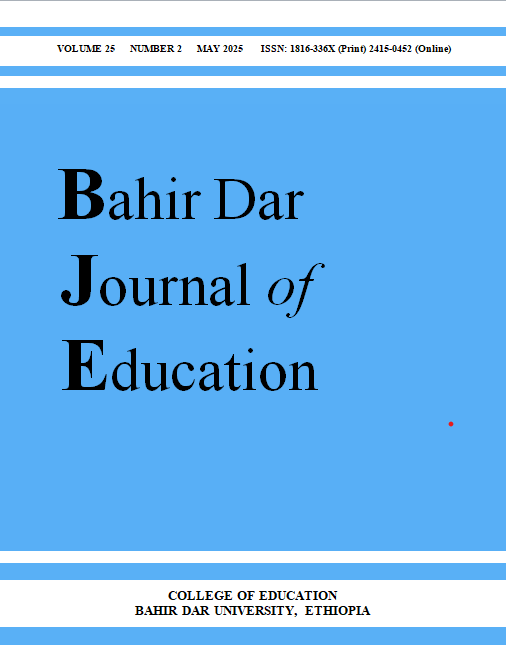Challenges of practicing competence-based education atBahir Dar University: Views of faculty and academic leaders
Abstract
The study wasintendedto investigate the challenges associated with the implementation of competence-based education (CBE) from the perspectives of faculty members and academic leaders at Bahir Dar University. A case study design was utilized to gain insights. A total of twenty-two participants, comprising eighteen males and four females, who occupy roles as faculty members, academic leaders, or both, were involved. Data were gathered through semi-structured interviews.The data were subsequently analyzed using the inductive content analysis technique. The study identified nine distinct categories of challenges that impede the effective implementation of CBE,such as (1) lack of shared understandng,(2) donor-driven and top-down curriculum design, (3)over-dominance of conventional instruction and assessment practice, (8) politicalinterference, and (9) stakeholders’ lack of commitment and negligence towardgood citizenship.Thestudy concludes that initiating the process with a comprehensive understanding of CBE that addresses these challenges is crucial. Furthermore, employing a systems thinking approach is beneficial for enhancing the practice of CBE
Copyright (c) 2025 Melkam ZewduAyalew(Ph.D.), Dawit Asrat Getahun(Ph.D.), Reda Darge Negasi (Ph.D.)

This work is licensed under a Creative Commons Attribution 4.0 International License.
Authors who publish with this journal agree to the following terms:
- Authors retain copyright and grant the journal right of first publication with the work simultaneously licensed under a Creative Commons Attribution License that allows others to share the work with an acknowledgement of the work's authorship and initial publication in this journal.
- Authors are able to enter into separate, additional contractual arrangements for the non-exclusive distribution of the journal's published version of the work (e.g., post it to an institutional repository or publish it in a book), with an acknowledgement of its initial publication in this journal.
- Authors are permitted and encouraged to post their work online (e.g., in institutional repositories or on their website) prior to and during the submission process, as it can lead to productive exchanges, as well as earlier and greater citation of published work (See The Effect of Open Access).

